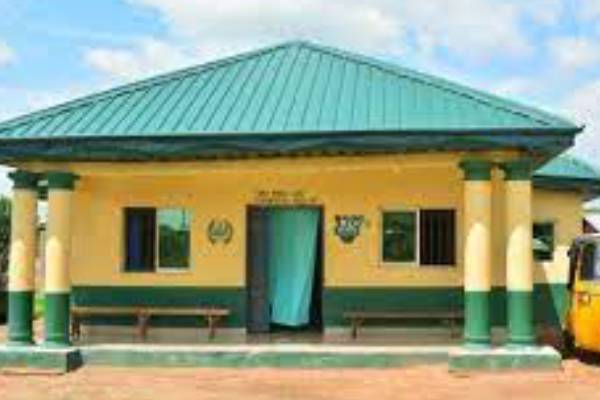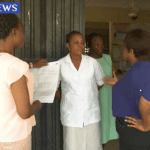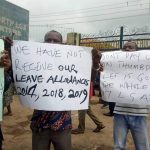Months after the scale 3.0 COVID-19 vaccination programme ended, health workers in Ondo state are yet to get their allowances.
Rosaline Yewande Ajadi is a community health assistant at the Primary health centre in Agbaluku Arigidi-Akoko, one of the suburbs of Akoko North-west local government of Ondo state, South west Nigeria.
For ten years, Miss Yewande did almost everything that would make her qualify as a health personnel, spending millions to get a certificate.
Since 2018 when she started working under the N-POWER programme, her monthly earnings are yet to reach the N30, 000 minimum wage mark. In spite of that, she and her team constantly go into the 12 communities attached to the facility with the COVID vaccination message but it is difficult sometimes.
Most Nigerians may have forgotten the dreadful moments COVID brought and the 3,155 deaths recorded during the pandemic with states like Ondo still lagging behind on the vaccination table, the health system is threatened particularly for children under 5 and pregnant women.
Every day she resumes work hoping that things will get better but her hope is thinning out. No word of a possible salary increase.
The thought of working here under relatively harsh conditions with paltry sum and staggered allowances tears her up.
At other facility. ten minutes away from the centre on Maternity street, an uneven road leads us to another Primary Health Centre in Imo arigidi-akoko.
Here the signpost reads 24 hours service, but the situation at the facility presents its own challenges: Shortage of staff, Insecurity and fear of the unknown stop the health workers from running the night shift.
As frontline survivors during the COVID-19 pandemic, these health workers are still fighting worse viruses and trying to survive with little money in their pockets.
NIGERIA RECODS 12 NEW LASSA FEVER CASES – NCDC
Nigeria according to the National Centre For Diseases Control, NCDC, has recorded 12 new laboratory-confirmed cases of Lassa fever in one week, between December 26, 2022, to January 1, 2023, from three states.
While the states with the new confirmed Lassa fever cases are: Edo (9), Ebonyi (2), and Benue (1), as of January 1, 2023, a total of 1,067 cases have been recorded in 27 states across 112 Local Government Areas, with 189 deaths reported with a Case Fatality Rate (CFR) of 17.7 per cent.
The NCDC’s report showed that seventy-two (72 per cent) of all confirmed Lassa fever cases were reported from three states (Ondo, Edo and Bauchi), while 23 per cent were reported from 24 states with confirmed Lassa fever cases. Of the 72 per cent of confirmed cases, Ondo State reported 33 per cent, Edo 25 per cent and Bauchi 14 per cent.
“The predominant age group affected is 21-30 years (Range: 1 to 90 years, Median Age: 30 years). The male-to-female ratio for confirmed cases is 1:0.8.
“The number of suspected cases has increased compared to that reported for the same period in 2021. No new healthcare worker was affected in the reporting week.
“National Lassa fever multi-partner, multi-sectoral Technical Working Group (TWG) continues to coordinate the response activities at all levels,” the report added.
To prevent Lassa fever, the NCDC continues to urge individuals and communities to promote good hygiene to discourage rodents from entering homes. Also, effective measures include storing grain and other foodstuffs in rodent-proof containers, disposing of garbage far from the home, and maintaining clean households.














